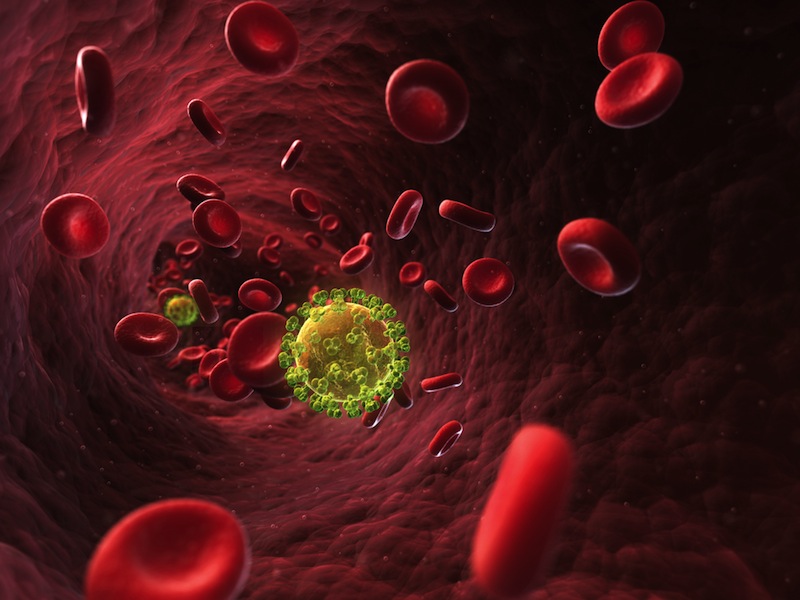Alexis Arquette's Death: How Do People Die from AIDS?

Get the world’s most fascinating discoveries delivered straight to your inbox.
You are now subscribed
Your newsletter sign-up was successful
Want to add more newsletters?

Delivered Daily
Daily Newsletter
Sign up for the latest discoveries, groundbreaking research and fascinating breakthroughs that impact you and the wider world direct to your inbox.

Once a week
Life's Little Mysteries
Feed your curiosity with an exclusive mystery every week, solved with science and delivered direct to your inbox before it's seen anywhere else.

Once a week
How It Works
Sign up to our free science & technology newsletter for your weekly fix of fascinating articles, quick quizzes, amazing images, and more

Delivered daily
Space.com Newsletter
Breaking space news, the latest updates on rocket launches, skywatching events and more!

Once a month
Watch This Space
Sign up to our monthly entertainment newsletter to keep up with all our coverage of the latest sci-fi and space movies, tv shows, games and books.

Once a week
Night Sky This Week
Discover this week's must-see night sky events, moon phases, and stunning astrophotos. Sign up for our skywatching newsletter and explore the universe with us!
Join the club
Get full access to premium articles, exclusive features and a growing list of member rewards.
Actress Alexis Arquette has died from complications related to AIDS, according to news reports, but how exactly, does someone die from the disease?
Arquette, who was an activist in the transgender community, died on Sunday at age 47, according to People magazine. Members of Arquette's family, including her sister Patricia Arquette and brother David Arquette, who are both actors, also released statements about their loss on social media.
"Alexis was a brilliant artist and painter, a singer, an entertainer and an actor," the family said in a Facebook post. "Despite the fact that there are few parts for trans actors, she refused to play roles that were demeaning or stereotypical. She was a vanguard in the fight for understanding and acceptance for all trans people."
AIDS, which stands for "acquired immunodeficiency syndrome," is a disease caused by an infection with the human immunodeficiency virus, or HIV. Typically, a person can live for many years with an HIV infection before developing the serious condition AIDS.
HIV destroys important immune cells that help the body fight off infection. Without treatment, HIV destroys more and more immune cells, making it harder for the body to fight off infections, including infections that would not typically cause symptoms in a healthy person, according to the Centers for Disease Control and Prevention.
Most people who die from HIV/AIDS do not die from the virus itself but rather from these so-called "opportunistic infections," which take advantage of a weak immune system, according to the University of California, San Francisco. For example, people with AIDS can become sick from the fungus Pneumocystis jiroveci, which is common in the environment and does not sicken most people but can cause pneumonia in people with AIDS, UCSF says.
Other opportunistic infections include tuberculosis, the fungal infection cryptococcosis and yeast infections of the esophagus, as well as cancers that are caused by viruses, such as Kaposi sarcoma (a cancer that develops from the cells that line lymph or blood vessels) and cervical cancer, according to UCSF. If left untreated, people who are infected with HIV typically survive about three years from the time their infection progresses to AIDS, the CDC says. [7 Devastating Infectious Diseases]
Get the world’s most fascinating discoveries delivered straight to your inbox.
When people first become infected with HIV, they may experience flu-like symptoms for several weeks. But then, the virus goes into a "latency stage," and although it reproduces at low levels, people who are infected with HIV may not have any symptoms during this time, according to the CDC. This stage of the HIV infection can last many years before a person eventually progresses to AIDS.
There is no cure for HIV/AIDS, but there is a treatment, called antiretroviral therapy, which can suppress the HIV virus and prolong the lives of people with HIV/AIDS, according to the CDC. If people start taking antiretroviral therapy before the disease has advanced, they can live nearly as long as people without HIV, the CDC says.
Still, about 1 in 8 people with HIV in the U.S. do not know they have the virus, according to the CDC. In 2013, 6,955 people in the U.S. died from HIV/AIDS, the CDC says.
Arquette was born male, but came out as transgender in 2006, and soon transitioned to female, which was documented in the 2007 film "Alexis Arquette: She’s My Brother," according to the Huffington Post.
Original article on Live Science.

Rachael is a Live Science contributor, and was a former channel editor and senior writer for Live Science between 2010 and 2022. She has a master's degree in journalism from New York University's Science, Health and Environmental Reporting Program. She also holds a B.S. in molecular biology and an M.S. in biology from the University of California, San Diego. Her work has appeared in Scienceline, The Washington Post and Scientific American.
 Live Science Plus
Live Science Plus











